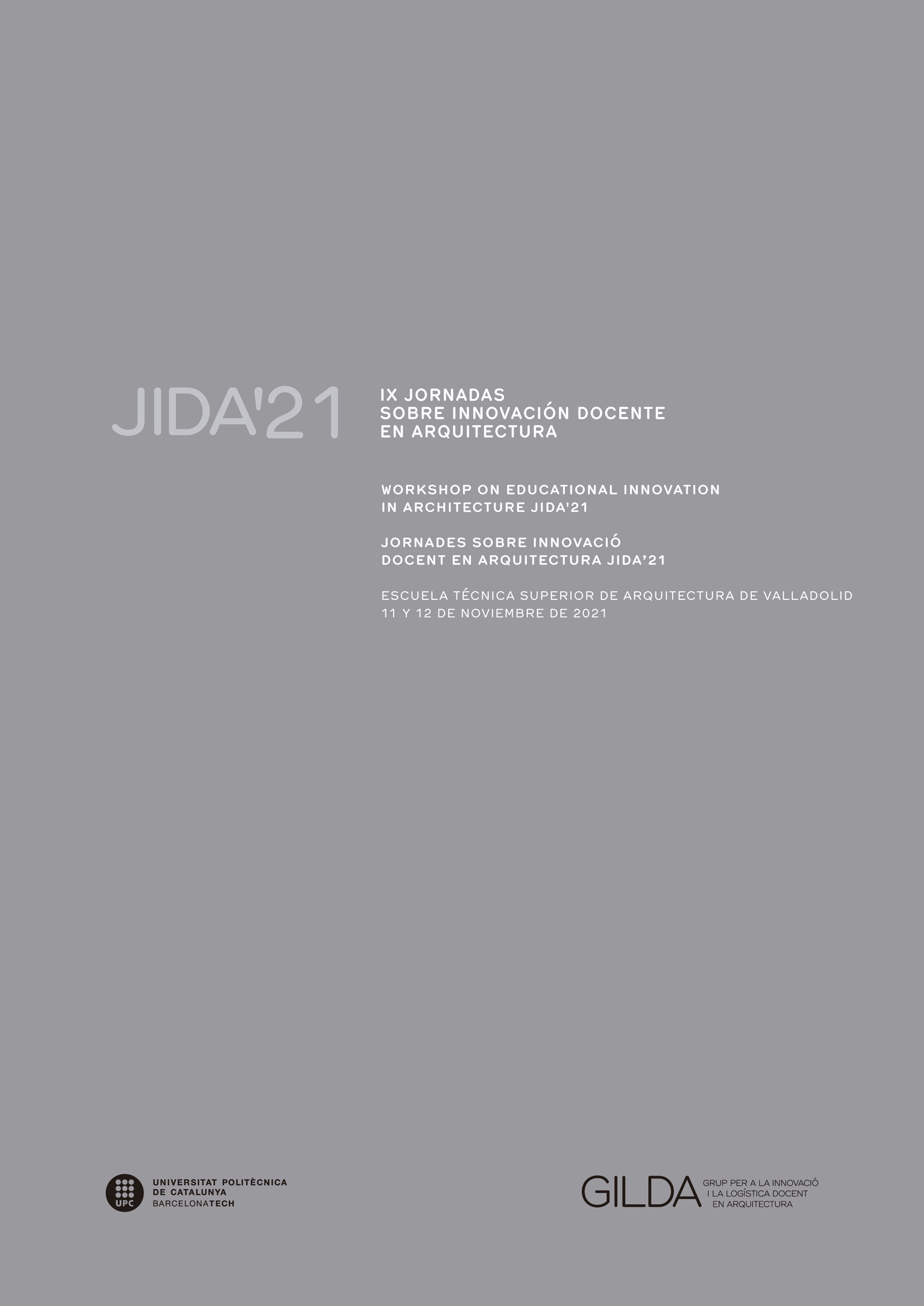Hyper-connected hybrid educational models for distributed learning through prototyping
DOI:
https://doi.org/10.5821/jida.2021.10585Keywords:
peer learning, education, cooperative, fabrication, distributedAbstract
The emergence of virtual classrooms has deeply impacted and transformed the educational methodologies and protocols, in particular since the dawn of the COVID19 pandemic. This sudden change from on-campus to virtual learning spaces has also presented a unique opportunity to teach locally and reach globally. The following paper aims to present a pilot educational framework stimulating distributed learning through prototyping using remotely controlled mechanical systems, not only as a transitory state of educational programs moving to online programs due to the current pandemic but as a viable alternative.
References
CORNADÓ, C.; CRESPO, E.; and MARTÍN, E. (2020). “Technological courses in Architecture during a lockdown: towards an applied teaching”, in JIDA’20, issue 8, p. 14-15.
DUBOR, A.; MARENGO, M.; and ROS FERNÁNDEZ, P. (2019). “Experimentation, Prototyping and Digital Technologies towards 1:1 in architectural education”, in JIDA’19, issue 7, p. 606-615.
FAB LAB BARCELONA-ISAAC. Designing something ‘almost useful’. <https://fablabbcn.org/blog/theclass/designing-something-almost-useful> [Consulta: Mar 10, 2021]
FLORES MUNGUÍA, M.F.; ALONSO NOVO, O.; and FERNÁNDEZ-DE-CASTRO, J. (2021). “Hybrid learning: just a previous step to go back to ordinary face-to-face sessions or an opportunity to go further on education by a hybrid pedagogical model”, in EDULEARN21, Proceedings, p. 8449-8455.
MEDINA IBÁÑEZ, J.; JENNY, D.; GRAMAZIO, F.; and KOHLER, M. (2020). “Feedback Formation: three teaching projects on robotically manipulated granular materials”, in JIDA’20, issue 8, p. 59-68. <https://10.5821/jida.2020.9312>
PIZARRO JUANAS, M.J.; RUIZ-PARDO, M.; and RAMÍREZ SANJUÁN, P. (2020). “A comparative study. Towards the implementation of a mixed teaching model”, in JIDA’20, issue 8, p. 52-53.
POTTER, J. (2015). “Applying a Hybrid Model: Can It Enhance Student Learning Outcomes?”, Journal of Instructional Pedagogies, v17, Nov 2015.
REDONDO-PÉREZ, M. and MUÑOZ-COSME, A. (2020). “Confined learning: Opportunities and perception of college students”, in JIDA’20, issue 8, p. 38-39.
ØRNGREEN, R. and LEVINSEN, K. (2017). “Workshop as a research methodology”, Electronic Journal of e-Learning, v15, n1, p. 70-81.






















